What Is Mental Preparation Checklist?
Author:
Unlock your full potential by engaging with our experts and community! Have questions about your fitness journey or looking for expert advice on weightlifting techniques? Don’t hesitate — leave a comment below and Sergii Putsov will provide a personalized answer and insights to help you reach your goals.
Torokhtiy is reader-supported. Some links are affiliate links, and we may earn a commission at no extra cost to you. See our disclosure page for details.
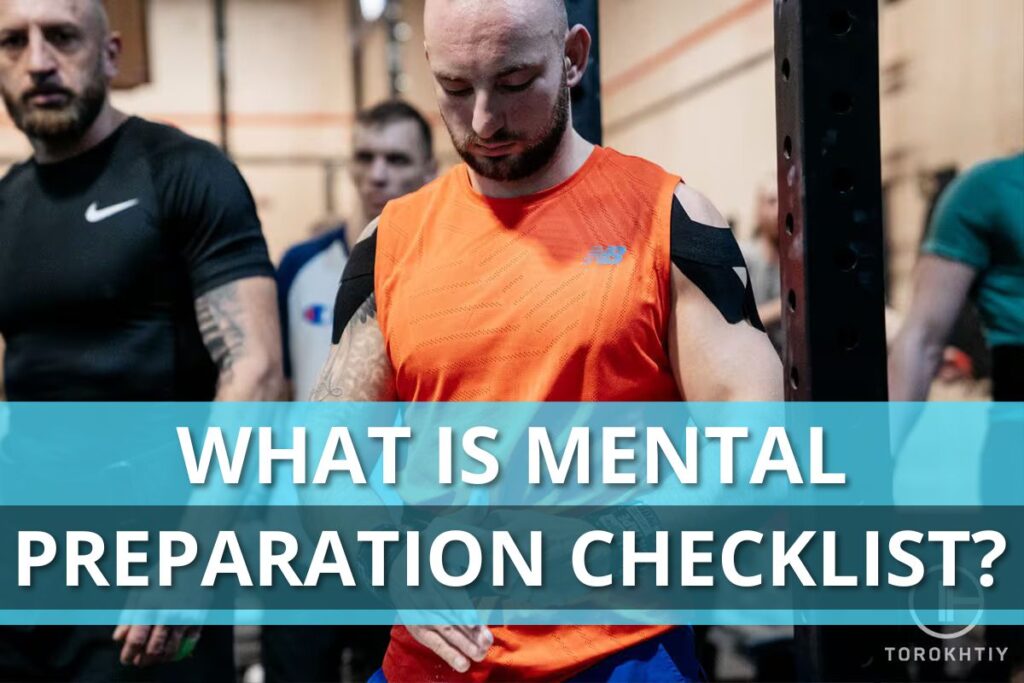
Being prepared mentally is as important part of your training as the actual physical training. It should begin at the same time that you decide that you want to enter a competition and become an integral part of your lifting training cycles. You need to start developing mental toughness while you are in your home gym preparing for the competition.
What is “Mental Preparation”?
My definition of mental preparation for olympic weightlifting is to create a familiar environment within your mind that enables you to perform to your lifting capacities.
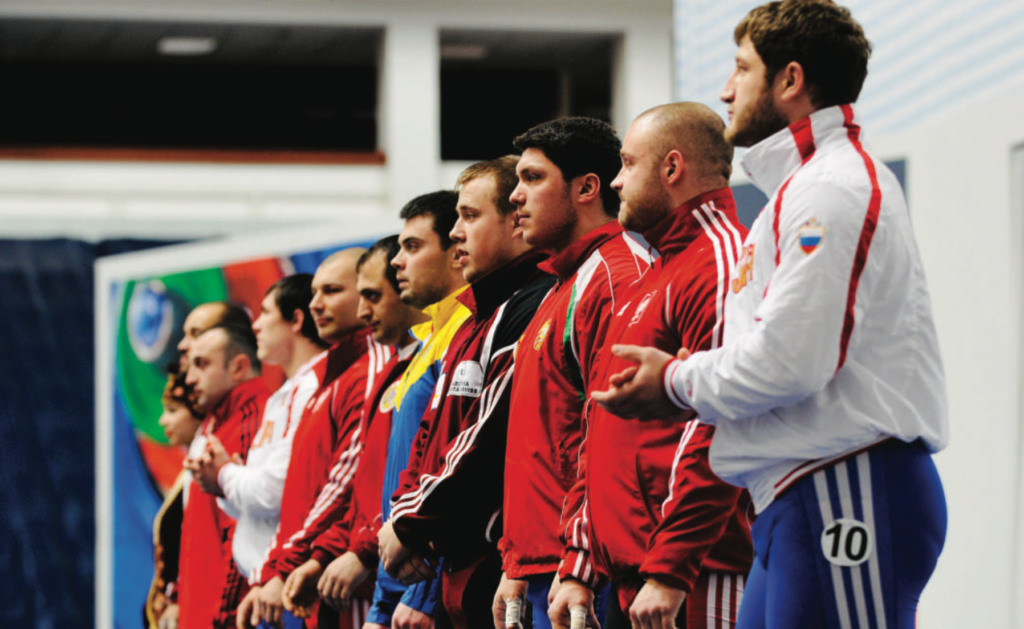
For a moment let’s examine the difference between the two platforms. The competition platform is completely different from the one in your home gym. Whether you have an in-home gym or you go to a public gym to train, this is a familiar environment. You know your gym’s etiquette and where equipment is stored. You will know the people that regularly work out. You may be training on your own, within a group class workout or under individual coaching. Bottom line is that it is a welcoming environment.
Follow us!
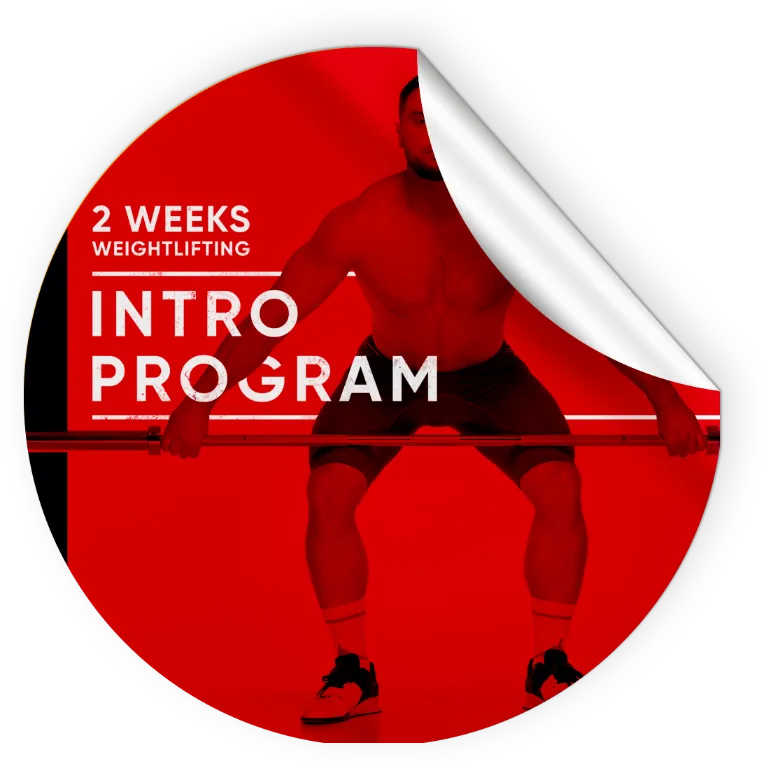
Free!
Get a 2-week Weightlifting Program as a bonus for the subscription to kickstart your training plan!

Free!
You may like it:
- Detailed Olympic Weightlifting Program For Beginners
- 12-Week Weightlifting Program For Women (Detailed Example)
- Create Your Olympic Weightlifting Program (Examples Included)
Especially for first time competitors, stepping onto the competition platform with Referees and an audience can be overwhelming. Everything from the qualifying weigh in process, waiting for your weight class session time, the warm up room and the competition platform are all new and unfamiliar. Scientifically speaking, your body will be on high alert pumping adrenaline into your system, increasing your heart rate which will cause anxiety.
Remember that Olympic weightlifting is a unique sport. Both the snatch and the clean and jerk combine control of both technique and strength within a lift that is completed in a fractional time frame. Generally if your control of technique and control of strength are not perfectly aligned during the lift, it will fail.
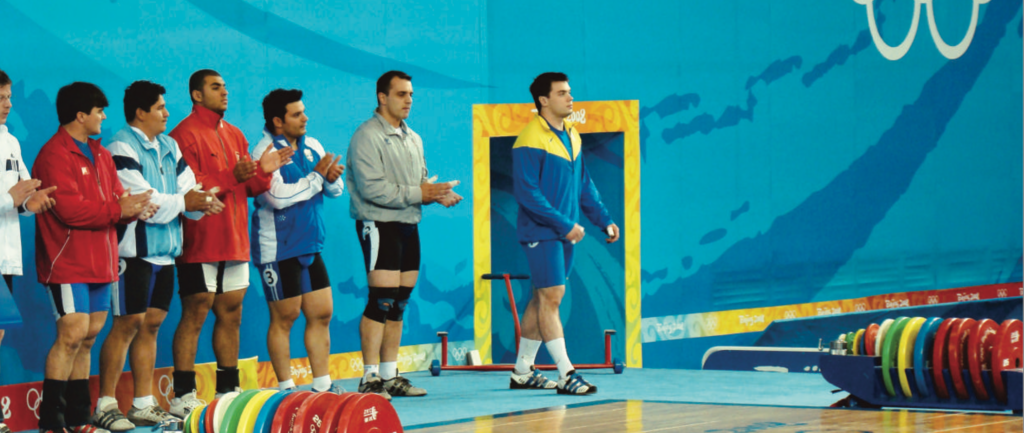
Let me explain this a little further. During my career I discovered the most successful athletes were able to control three basic principles to achieve success:
1. Technique Control
You can develop excellent technique with extensive repetitions at lighter weights. Either with your coach correcting you upon each repetition and/or using video to watch body angles. Then developing body/muscle memory through extensive repetitive lifts so that each lift looks exactly the same. I’m sure that you’ve watched youtube videos of the top lifters when they display their three successful competition lifts side by side and they look exactly the same other than the increase in the amount of weight on the bar.
2. Strength Control
Part of weightlifting is formula based. In order to snatch 100 kilos you must be able to back squat 150-160 kilos. However, to actually successfully snatch 100 kilos you must be able to pull the bar high enough to get your body under the bar. Some athletes may need to pull the bar higher than the next athlete who may have developed more speed in getting under the bar and may not need to pull it as high. It’s the same weight but each athlete needs different control of their strength to be successful. You can read more about this in my Snatch Masterclass Manual. I’ve witnessed both the technical athletes outlift a stronger opponent due to flawless technique but I’ve also seen stronger athletes able to outlift the technical lifter due to pure brute strength.
3. Mental Energy Control
I view mental energy as one of the most overlooked factors in obtaining success. I’ve seen some of the most technically sound and strongest athletes beaten by athletes that were not their day to day equal. I attribute it to that athlete being able to better control their mental energy. This means that the athlete was better able to deal with the pressures of competition and conserve their mental energy to use their reserves at the best time. During a competition, the unfamiliarity of the venue, the inner workings of the competition event and the pressure of the competition itself, will produce high amounts of adrenaline which can cause missed lifts. Missed lifts are less likely due to technique or strength issues but from what is happening between the athletes ears.
There is no formula on how long it takes to develop this skill. For some athletes developing control of their mental energy or toughness is very easy whereas others it takes longer and much more work. It’s definitely worth starting as early as possible to find your formula.
There are so many technique factors that go into making a successful lift. At a very brief and high level consensus would be your starting foot and overall body positioning, body angles throughout the lift and overhead bar positioning. Especially for the novice weightlifter, those few identifiers could be broken down further into a list of ten techniques within a successful list.
You could compare it to a beginning car driver. The beginner will have to incorporate so many different basic skills to successfully drive a car. Think how difficult it was as a beginning driver to have to turn a corner to join the flow of traffic. As you gain more experience, so many of the skills that you once had to mentally identify and develop to safely drive have become instinctively second nature.
It will be the same with your approach to lifting the bar. During training, it is vital to get into the habit of approaching the bar and setting up in the same way on every lift and repetition. As you gain experience through training, you will discover your best overall body positioning. For example, you no longer have to think of how far apart your feet need to be, the positioning of your knees, shoulders, chest and head.
Beginner techniques that you really had to focus on are now second nature when setting up to initiate the lift. Your mental checklist has been slowly pared down to individual techniques within the lift that you’ve identified as problem areas. The goal is you’ve developed habits from approaching your set up in the same way, every time that your mental checklist is no more than three specific items.
My mental checklist was only two items. Setting up into my lifting positioning over the bar is like sitting in my most favorite comfortable chair. It is completely natural and I do not have to think about it. So when I am performing a snatch lift my mental checklist is to “pull the bar upwards for as long as possible to the absolute furthest point of the momentum that I have generated while keeping the bar as close to my body.” For the clean and jerk my mental checklist is about “keeping my lower back in perfect position during the lift” and then after cleaning it, during my dip and drive “making sure that I don’t shift my knees forward”. Again, your checklist will be different. On competition day, there will be so many unfamiliar stimuli stemming from the event that you’ll need to be able to rely on your tried and true excellent set up habits. Despite the pressure of being judged in front of an audience, you will not add to the tension by having to think about how to set up at the bar on the competition platform.
More details about the best performance approaches and tips you can find in my e-book Competition Day – X. With this book, you can create a familiar environment within your mind that will enable you to perform at your best. Learn from my own experiences and create your own winning strategy.
You won’t regret it!
You might be interested in:
Why Trust Us?
With over 20 years in Olympic weightlifting, strength training, nutrition coaching, and general fitness our team does its best to provide the audience with ultimate support and meet the needs and requirements of advanced athletes and professional lifters, as well as people who strive to open new opportunities and develop their physical capabilities with us.
By trusting the recommendations of our certified experts in coaching, nutrition, and sports training programming, as well as scientific consultants, and physiotherapists, we provide you with thorough, well-considered, and scientifically proven content. All the information given in the articles concerning workout programming, separate exercises, and athletic performance, in general, is based on verified data.
The product testing process is described in more detail here.
Author: Sergii Putsov
Head of Sport Science, PhD
Best Results: Snatch – 165 kg,
C&J – 200 kg
Sergii Putsov, Ph.D., is a former professional weightlifter and National team member, achieving multiple medals in the 94 kg weight category at national competitions. With a Master’s degree in “Olympic & Professional Sport Training” and a Sport Science Ph.D. from the International Olympic Academy, Greece, Sergii now leads as the Head of Sport Science. He specializes in designing training programs, writing insightful blog articles, providing live commentary at international weightlifting events, and conducting educational seminars worldwide alongside Olympic weightlifting expert Oleksiy Torokhtiy.



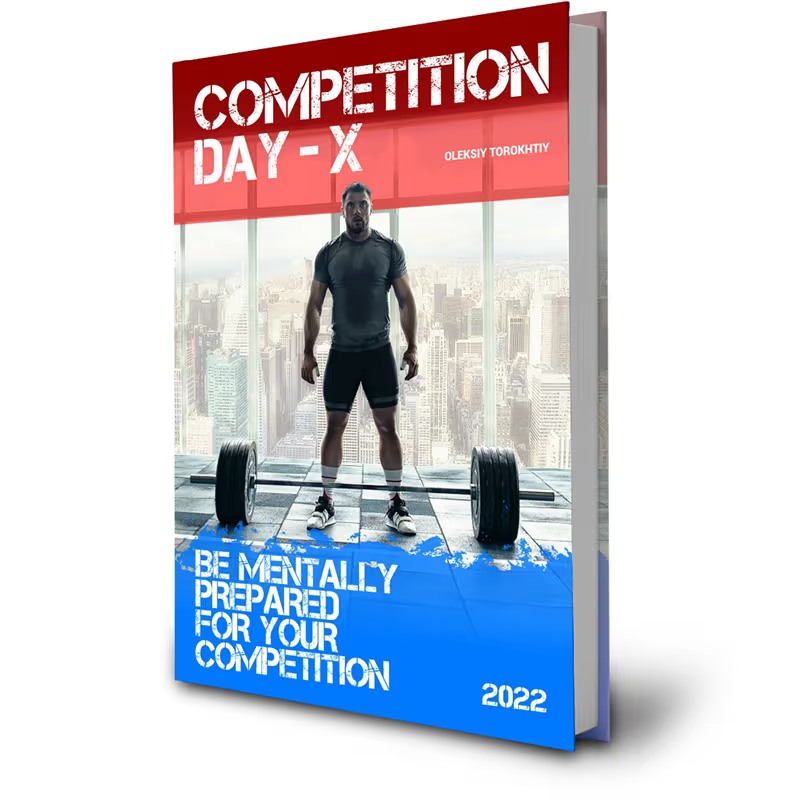
Still have questions after reading our article? Unlock your full potential by engaging with our experts and community! Don’t hesitate — leave a comment below and Sergii Putsov will provide a personalized answer and insights to help you reach your goals.